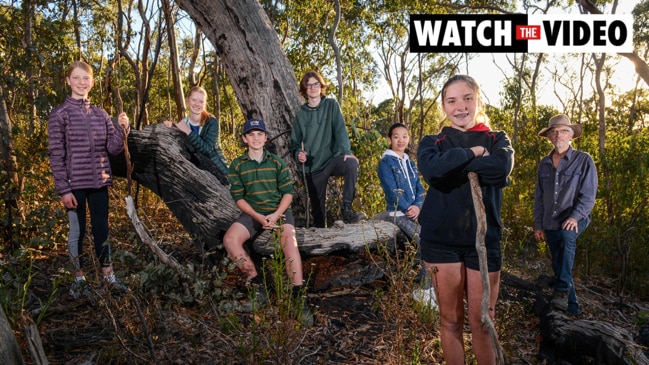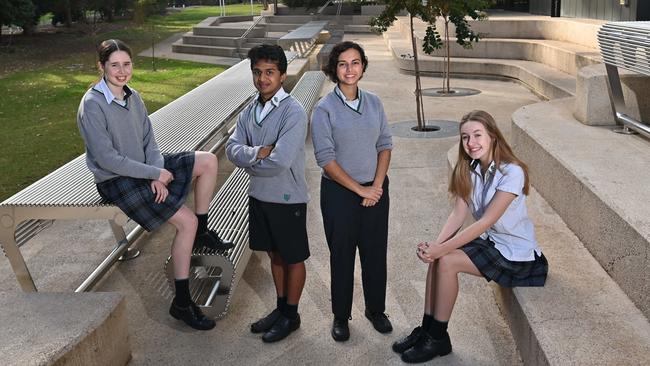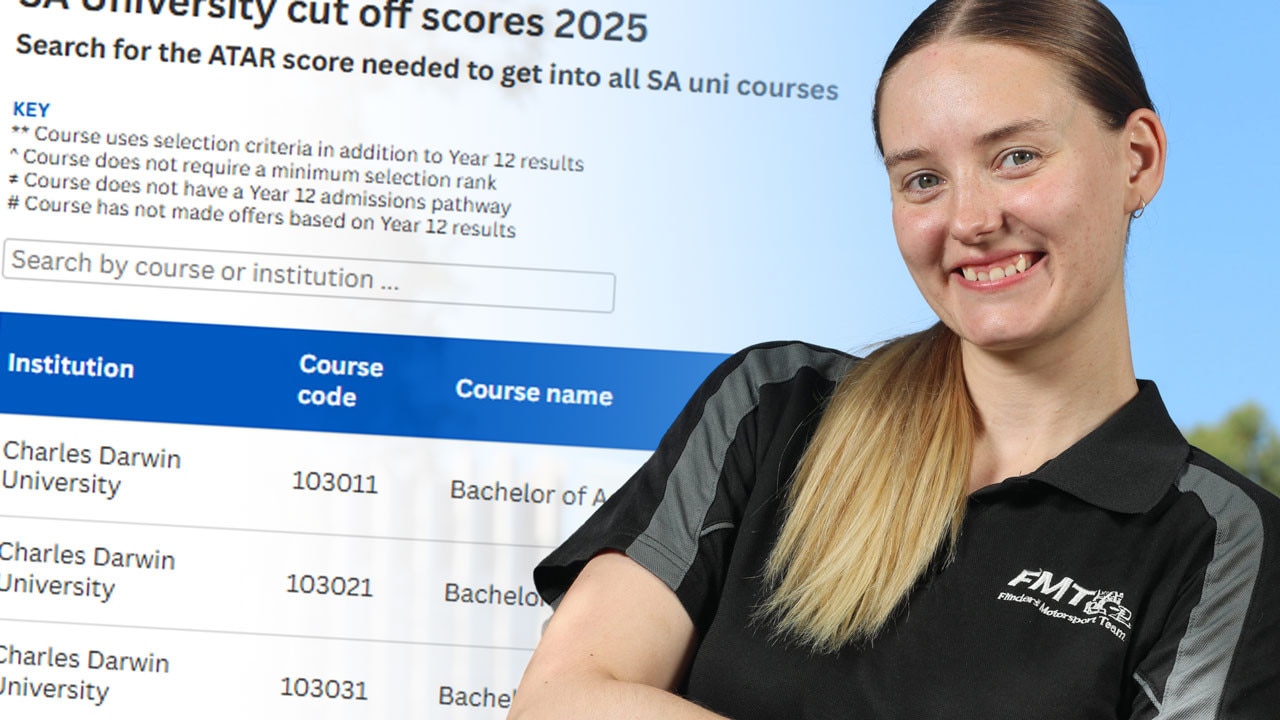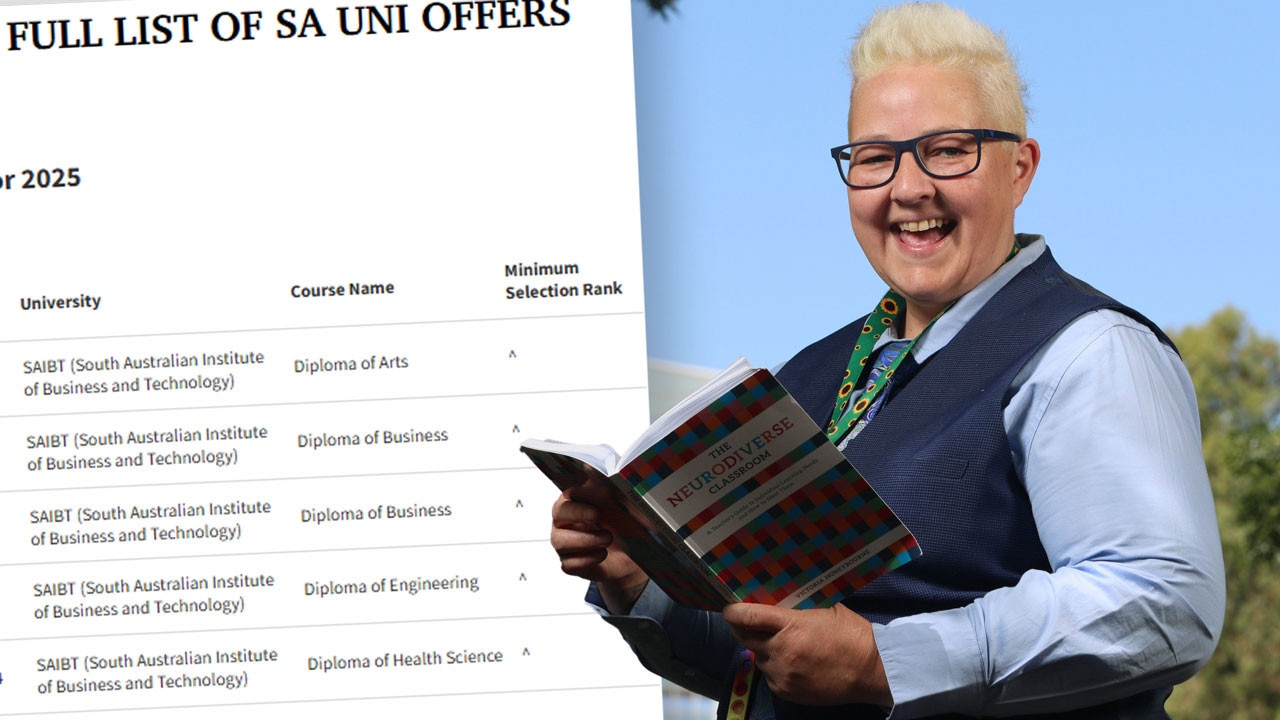YouGov poll shows South Australians remain divided on paying for climate action
South Australians are split on whether it’s worth it to them to fix climate change – but experts warn a key factor could prove to be false economy.

Education
Don't miss out on the headlines from Education. Followed categories will be added to My News.
South Australians are evenly split on whether to pay more for action against the crippling impacts of climate change, an exclusive YouGov poll reveals.
The survey, commissioned by the Sunday Mail, shows that 76 per cent of readers believe it’s “important” or “extremely important” to achieve a better outcome for the environment, but fewer people are inclined to act on it if it increases their cost of living.
But experts argue this is a false economy, because the cost of inaction far outweighs the cost of action over the mid to long term. They point to the destruction of the 2019-20 bushfire season, when record heat spells followed a record drought.
Research published in the journal Nature Sustainability put national smoke-related health costs at $1.95 billion with an estimated 429 smoke-related premature deaths, 3230 hospital admissions for heart and breathing disorders, and 1523 emergency department visits for asthma.
The annual bushfire-related costs were more than nine times the average for the past decade at $211 million.
With a changing climate, impacts would only continue to become more dramatic, researchers noted.
Climate action can have immediate financial benefits. The high proportion of renewable electricity in SA is reducing wholesale power prices, which influence retail prices.
Households with rooftop solar panels are saving on their electricity bills and those with a battery can consider going off-grid. Electric cars in SA cost about a third to run and a third to maintain, compared to standard petrol vehicles.
University of Adelaide research shows most households can grow enough vegetables in their backyard to become self-sufficient, saving money on fresh produce.
The university’s Environment Institute director Professor Robert Hill warned the cost of inaction was so great that Adelaide would become unbearable as the world warmed without significant intervention to shift the microclimate and mitigate urban heat island effects.
“If we don’t do something about vegetation in particular in the city, then Adelaide becomes an unlivable city within 10 to 15 years,” he said.
“The increase in extreme heat, or days of extreme heat, is really quite frightening over the last decade. It doesn’t have to get too much worse before people will really struggle to survive summer in Adelaide.
“So if we can do something to improve the overall vegetation cover, it’s a straight human health issue, if nothing else, and then there’s all the other benefits.”
When it comes to deciding who has the most influence on reducing the impact of climate change on the environment, the federal government came out on top with 30 per cent, followed by corporations and industry (21 per cent), the state government (16 per cent) and individuals (13 per cent).
However, most people (57 per cent) believe ordinary South Australians can make a difference.
Around half of South Australians are prepared to pay something for climate action, but only 15 per cent want action if it increases their cost of living “significantly”.
The trade-off between cost of living and climate change is more pronounced among older South Australians.
University-educated people and those living in inner metropolitan Adelaide were more willing to pay for action than those in the outer suburbs or the regions.
There were also obvious differences by voter identification.
Green voters were the most willing to pay for climate action (72 per cent), followed by Labor voters (59 per cent), compared to Liberal voters (43 per cent).

Young people prepared to act no matter the cost
YouGov polling shows 55 per cent of people aged 18-34 are willing to take a hit to their wallet – a marginally higher result compared to the 35-49 age group and well above the figures for older South Australians.
Adelaide Botanic High School students outlined a number of ideas they would be happy to have funded by taxpayers.
Sasha Saulwick, 16, of Payneham, wanted to see “greater abundance of plants and canopy, because I think that’s super-important in helping to lower temperatures”.
“In terms of policy, I think there needs to be greater regulation around developers and building, about what they are allowed to do when they buy and own big blocks of land or start to produce apartments and things like that,” she said.
“Because a lot of the time they’re just big structures and there’s no space for greenery, which not only impacts the environment but community and mental health.”
Mihir Ramji, 16, from Brompton, said coming to live in Adelaide from Kenya was a real “breath of fresh air”.
“I see Adelaide as a city already inside a park,” said Mihir, who used to suffer from asthma.
To promote climate awareness, he would like Adelaide to host an electric car race, Formula E, “just like we used to host the Formula 1 in the 1980s”, and also reintroduce native animals into the wild.
Felicity Birse, 16, of Mile End, said: “We could have separate areas for bikes and for cars because, that way, they don’t have to clash.”




